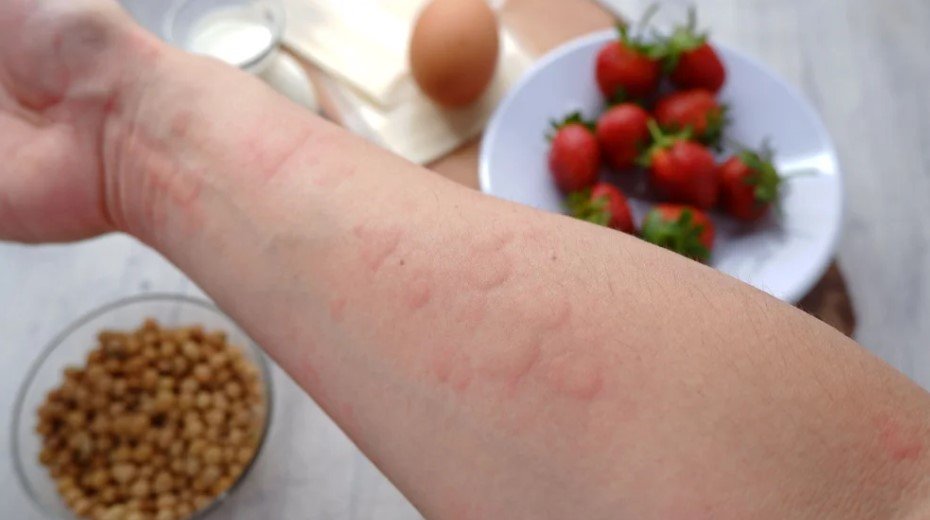Food allergies are becoming increasingly common among children and can cause significant concerns for parents. This guide aims to educate you on food allergies, their symptoms, diagnosis, and effective strategies to mitigate their impact on your child.
What are Food Allergies?
Food allergies occur when the immune system mistakenly identifies certain proteins in food as harmful, triggering an allergic reaction. This reaction can range from mild to severe and may involve multiple body systems. Common food allergens include milk, eggs, peanuts, tree nuts, wheat, soy, fish, and shellfish.
Who is More Prone to Food Allergies?
Children are more likely to develop food allergies if they:
- Have a family history of allergies, asthma, or eczema.
- Suffer from other allergic conditions, such as hay fever or eczema.
- Have atopic dermatitis, which increases the likelihood of developing food allergies.
- Have a sibling with a food allergy.
Symptoms of Food Allergies
Symptoms of food allergies can vary widely and may include:
- Skin Reactions: Hives, eczema, or swelling of the lips, face, and eyes.
- Gastrointestinal Symptoms: Abdominal pain, nausea, vomiting, or diarrhea.
- Respiratory Symptoms: Runny nose, wheezing, coughing, or shortness of breath.
- Cardiovascular Symptoms: Dizziness, fainting, or a drop in blood pressure.
- Anaphylaxis: A severe, potentially life-threatening reaction characterized by difficulty breathing, rapid pulse, and a drop in blood pressure, requiring immediate medical attention.
Are Food Allergies Contagious?
Food allergies are not contagious. They are an immune system response and cannot be transmitted from one person to another.
Diagnosis of Food Allergies
To diagnose food allergies, a pediatrician may:
Review Medical History:
Assess your child’s symptoms and any family history of allergies or asthma.
Physical Examination:
Conduct a thorough examination to identify any allergic reactions.
Allergy Testing:
- Skin Prick Test: Introduces small amounts of food allergens to the skin to observe reactions.
- Blood Test: Measures the level of IgE antibodies to specific food allergens.
Oral Food Challenge:
Under medical supervision, your child consumes small amounts of suspected allergens to monitor any reaction.
Treatment and Management of Food Allergies
Managing food allergies involves avoiding exposure to allergens and addressing symptoms promptly:
Avoiding Allergens:
- Read Labels Carefully: Check ingredient lists for allergens and avoid cross-contamination.
- Educate Caregivers: Inform family members, caregivers, and school staff about your child’s food allergies and the importance of avoiding allergens.
- Plan Meals: Prepare safe meals and snacks for your child to ensure they do not accidentally consume allergens.
Medications:
- Antihistamines: Relieve mild allergic symptoms like hives or itching.
- Epinephrine Auto-Injector: Prescribed for severe reactions (anaphylaxis) to be used immediately in emergencies.
Always follow your pediatrician’s instructions regarding medications.
Emergency Action Plan:
Develop a comprehensive action plan outlining steps to take during an allergic reaction. Ensure caregivers and school staff are aware of your child’s allergies and know how to use emergency medications.
Regular Monitoring:
Schedule regular follow-ups with your pediatrician to monitor your child’s condition and adjust management strategies as needed. Keep track of symptoms and triggers to identify patterns and adjust management strategies.
Conclusion
Managing food allergies in children requires vigilance in avoiding allergens, being prepared for emergencies, and educating caregivers. By taking these steps, you can significantly reduce the impact of food allergies on your child’s life. If you have any concerns or need personalized advice, don’t hesitate to consult with your pediatrician.
Your child’s health is our priority. Let’s work together to keep them healthy and safe!
For personalized advice and treatment options, please consult:
Dr. Kritika Agarwal, Pediatrician and Adolescent Specialist
Pinnacle Health Multispeciality Clinic
Hosa Road, Bangalore








